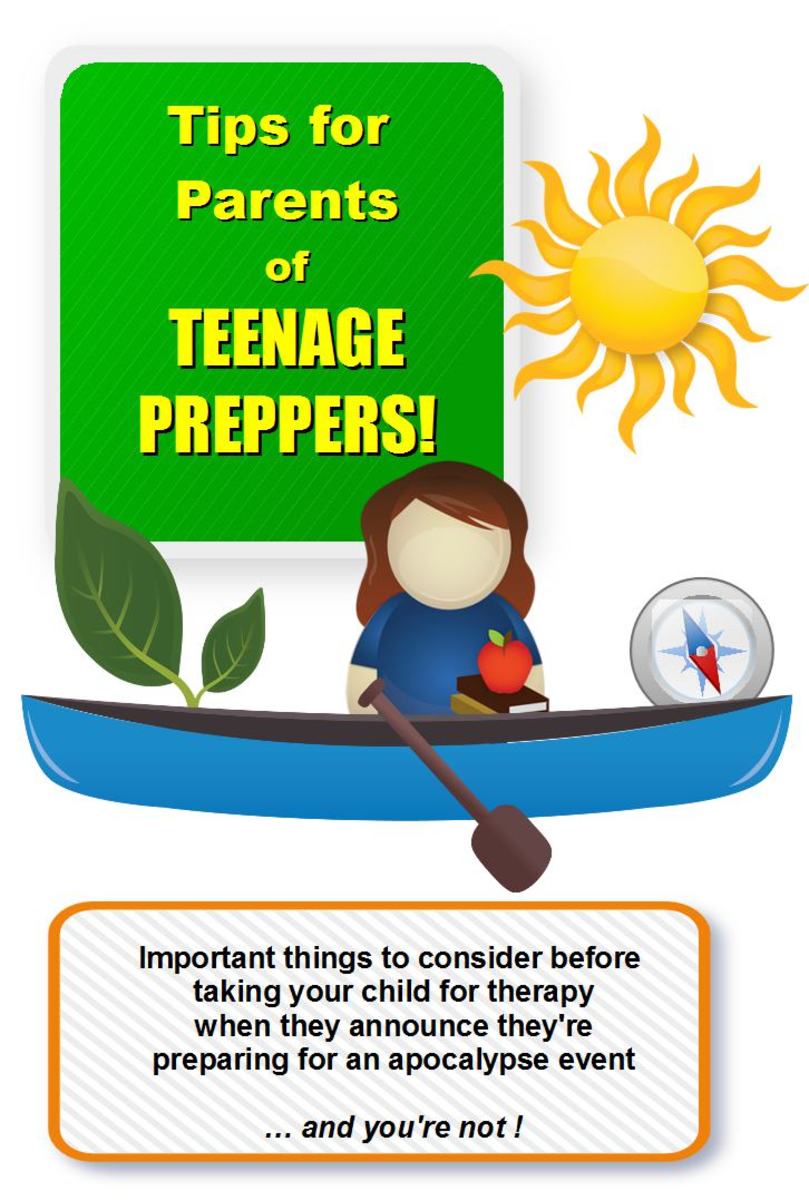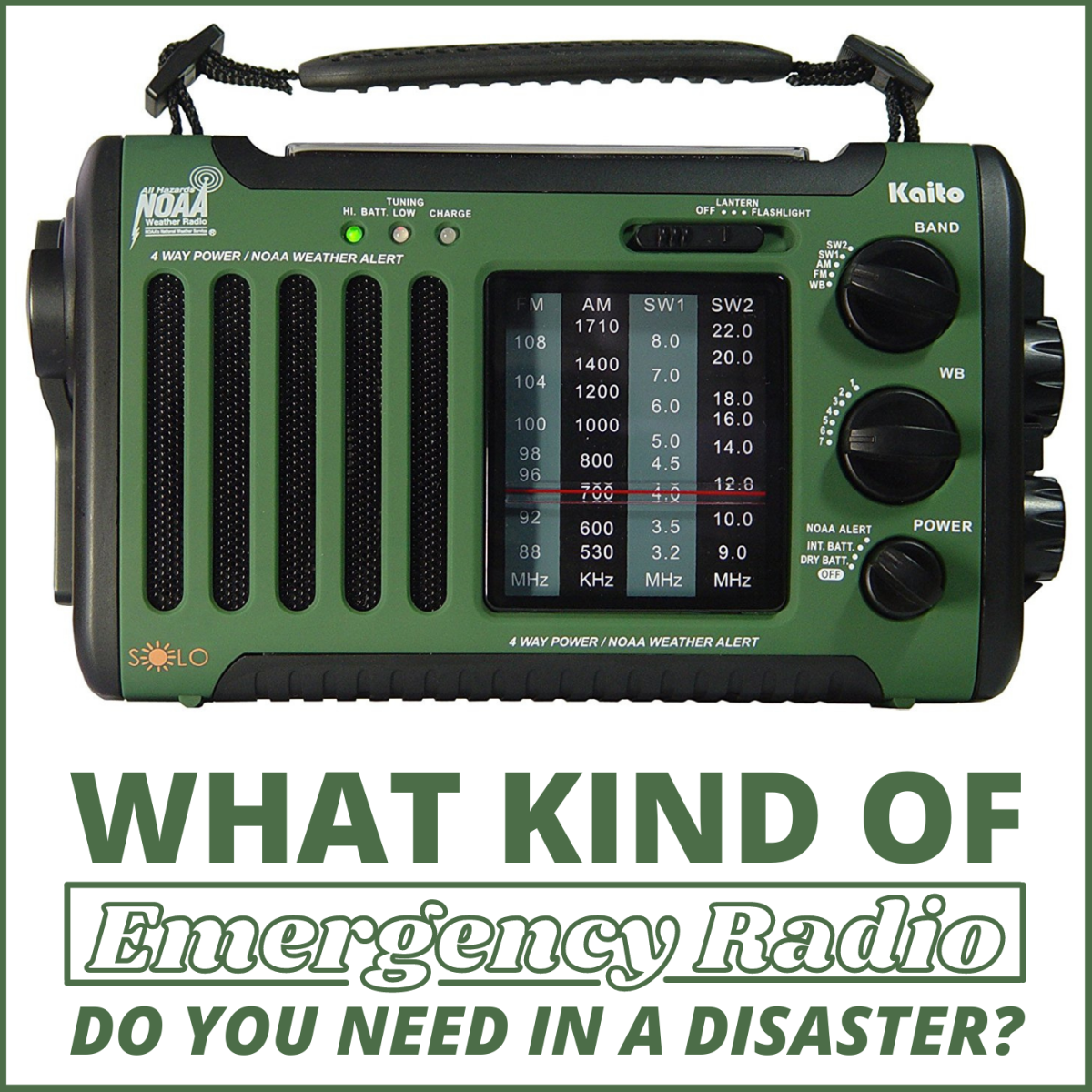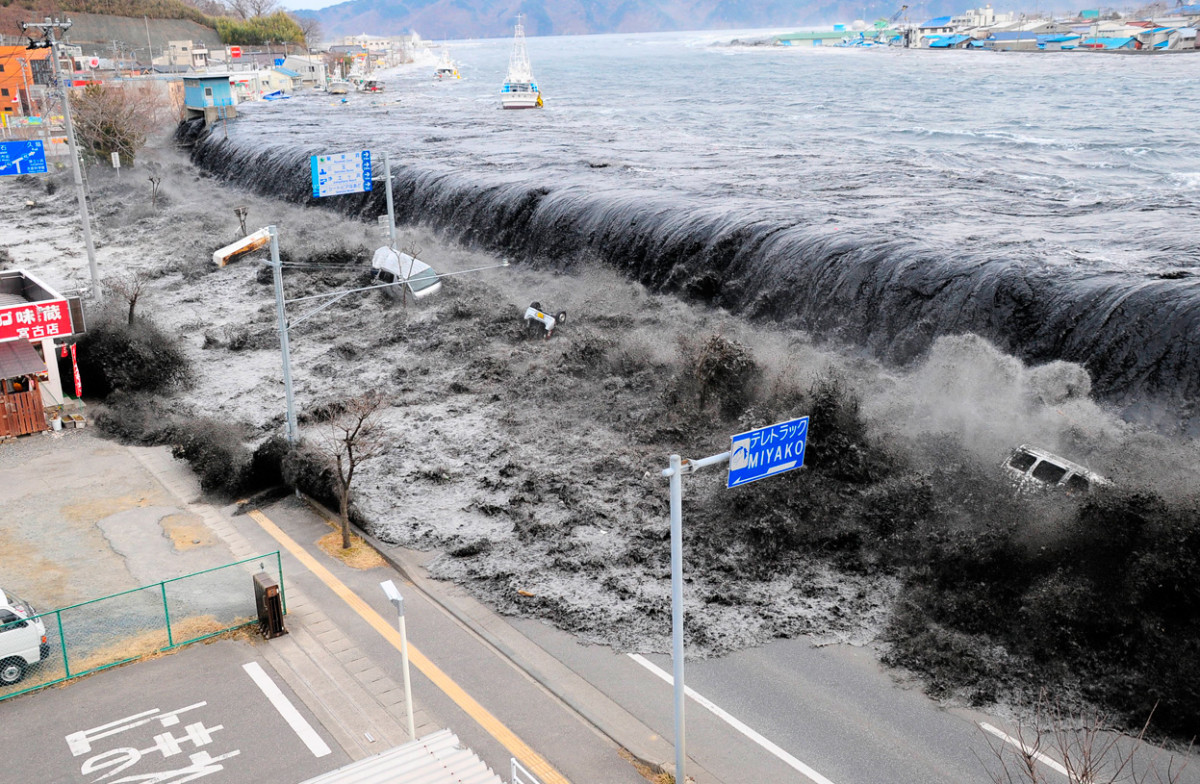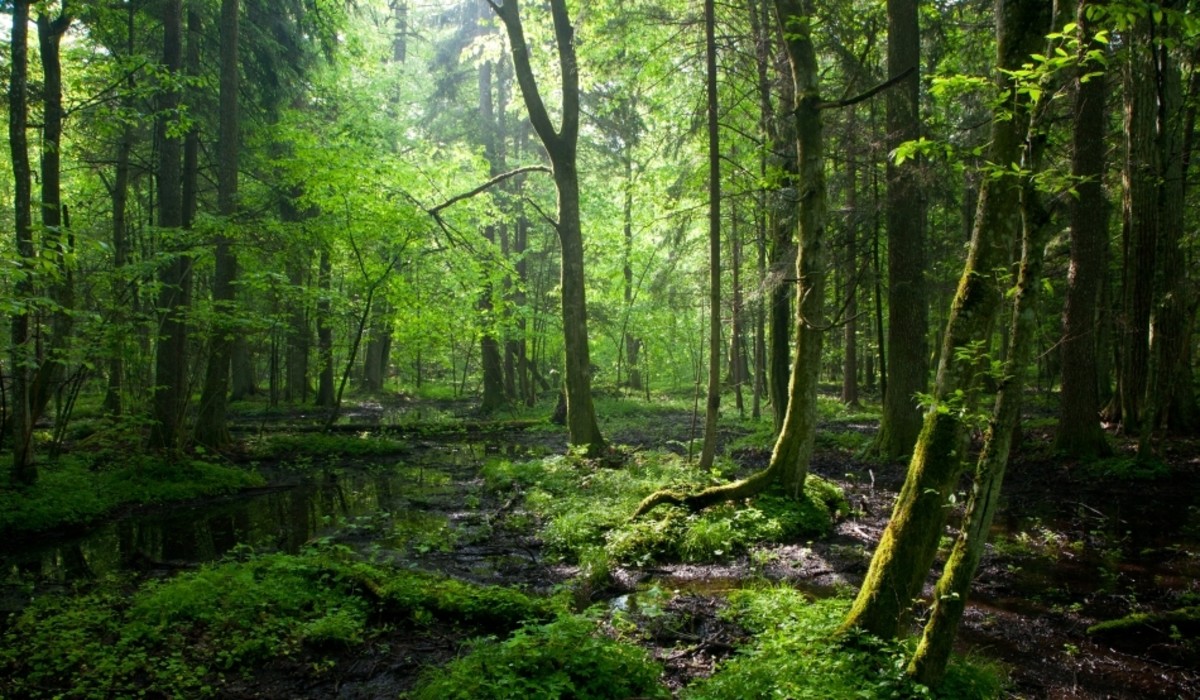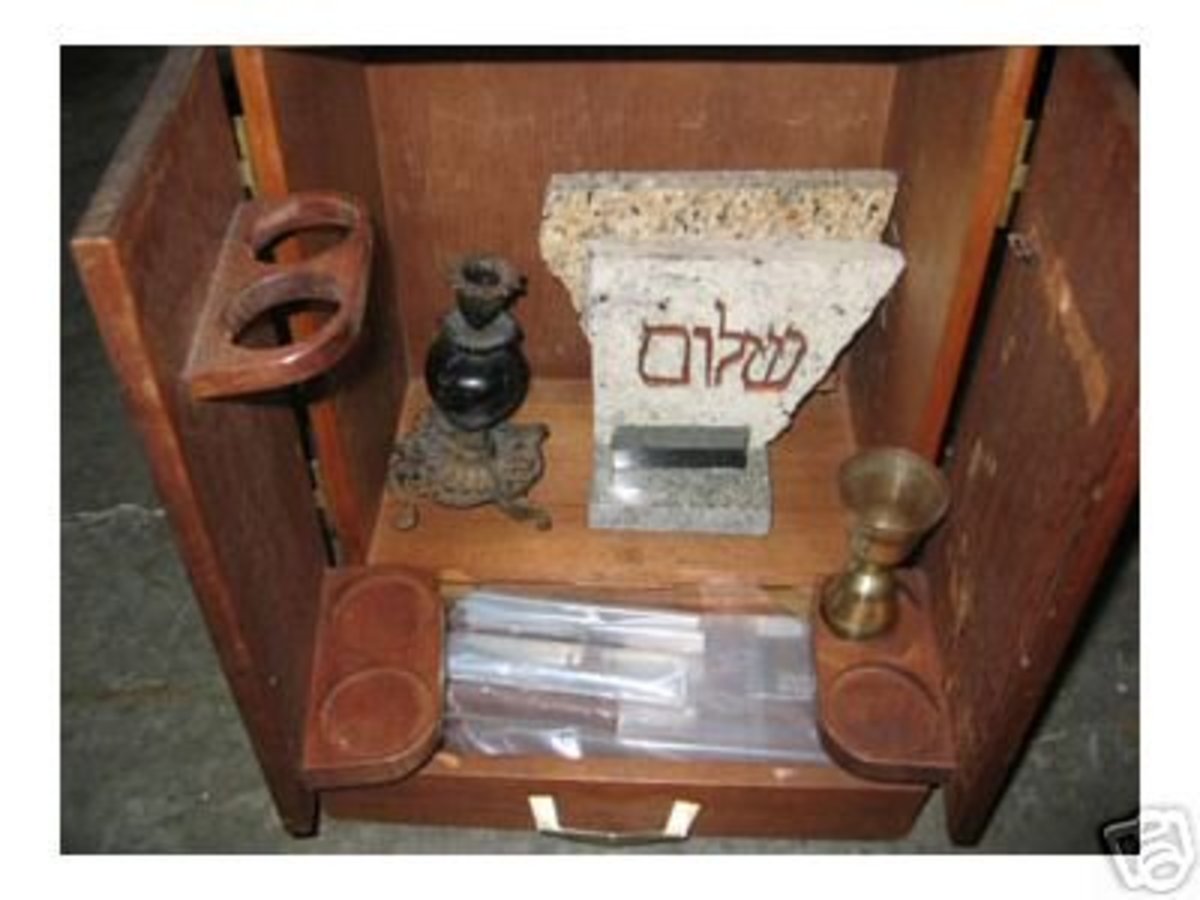Disaster Planning What to Do and How to Do It
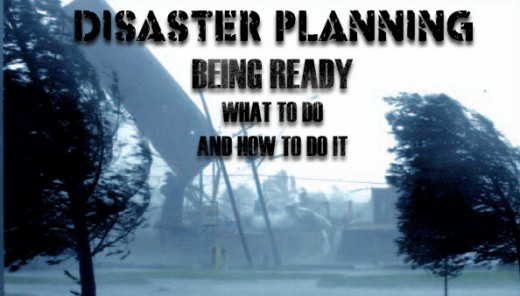
Planning for a Disaster
The news is filled with images of disasters either man-made or by nature and they are stark reminders of what can happen when we are caught unprepared. From pandemic disaseses, earthquakes, floods, the power of a hurricane, tornadoes, tsunamis, fire storms, blizzards, and volcanoes; nature has our plates full of her own destructive main dishes for us to face. War and civil-unrest, power outages, riots, trucking strikes and a host of other man-made disasters are very real disturbing issues that we have to face caused by our own arrogance and foolishness. So what can you do? Yes YOU!
We all hear about the proverbial "THEY"... ,"Don't worry, I'm sure THEY will find us.", "It's going to be okay, THEY will have the power back up soon", "Hey I'm sure THEY have some food for us."... So I have to ask, who are THEY? What FEMA? Or maybe THEY are the government? Or perhaps the military? The police and fire departments? Search and Rescue? Disaster relief groups? Yes THEY are out there but THEY can take time to get to everyone effected by a major disaster and THEY may not even know you exist when the event takes place. You may have to take care of yourself and more than likely that is exactly what is going to happen.
Disaster centers are usually announced by radio and on television state emergency announcements on tickers and news interruptions. They are usually at schools where large numbers of people can congregate to get provisions. Hospitals are usually overwhelmed by the wounded, sick, and dying when a disaster hits. Clean water stations can be found near municipal water centers but how much you get can be rationed out per family. Trucks with water purification systems fill jugs and you will have to wait in line. With damaged power lines, gas leaks, car accidents, civil unrest... a natural disaster can last much longer than the event itself and the effects can change our lives forever.
We can minimize these effects on our lives by being prepared. A list of supplies for a weeks worth of survival is on my End Times Survival Network Hub. There you can find ideas on what to do in short and long term disasters, what to do and what you will need to and have to make it through the disaster is talked about there. But let's take a look at some personal planning when it comes to a disaster.
Family and Friends:
Here we can look at what to do after a disaster and how to prepare for the worst!
- Do not panic, maintain your composure by checking around your home for damages or immediate concerns when it comes to danger like gas leaks, electrical fires, broken water pipes. Turn off the main breaker to the house after a disaster, check for gas leaks by smelling for sulpher and listening for hissing sounds (do not light candles or smoke after a disaster unless you are outside!), look for leaking water.
- Take care of any injuries you or other family members have with a first aid kit. If someone is seriously injured call 911 or find a way to immobilize the person and send someone out to find help! Get certified in CPR, most communities have classes available. Join a Citizens Emergency Response Team or CERT for training in disaster relief.
- Right after a disaster make sure you can locate all immediate family members from children in school to spouses at work. Have phone numbers on a list next to the phone at home or at work. If communications are down the first thing you should do is head home! If home is not accessible have an agreed upon safe place to meet with your spouse. Children should stay at school until an adult guardian or parent can get them.
- Other family members not living with you should have a phone tree list to make contact with those they love. Once that person or family has been contacted and news shared mark them off the list or list any concerns on their part next to their name and move on. Contact should be short and only pertinent information should be shared.
- Inventory your water and survival gear. Make sure you keep an accurate record of your supplies. It is crucial to know what you have so you can make a plan.
If the disaster is going to last a long time set up a meeting place where everyone can gather together and discuss what to do. Have escape routes from your city planned out. Major roads may be clogged or cut off, find an alternative less traveled way out of the area. Bring only what you need.
- Practice once a year where you turn off the power to your home, live on what you have. Use your emergency supplies as if an emergency has actually happened. This is like a fire drill but should a real emergency take place you will be more prepared. Meet at your meeting place. This will prepare you for a disaster should one occur.
What makes a person good at what they do? Having the knowledge and real world experience along with training give a person the upper hand in any endeavor they are involved in. You become good at your job because you do it everyday until it is second nature. Police train all the time, they practice shooting and go through training on how to deal with emotional civilians and threats to give them the edge when dealing with volatile situations. The same can be said for practicing for a disaster and surviving one.

